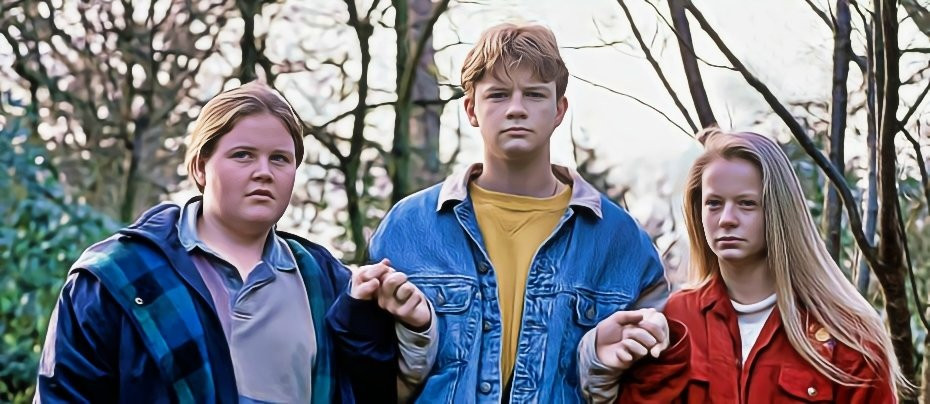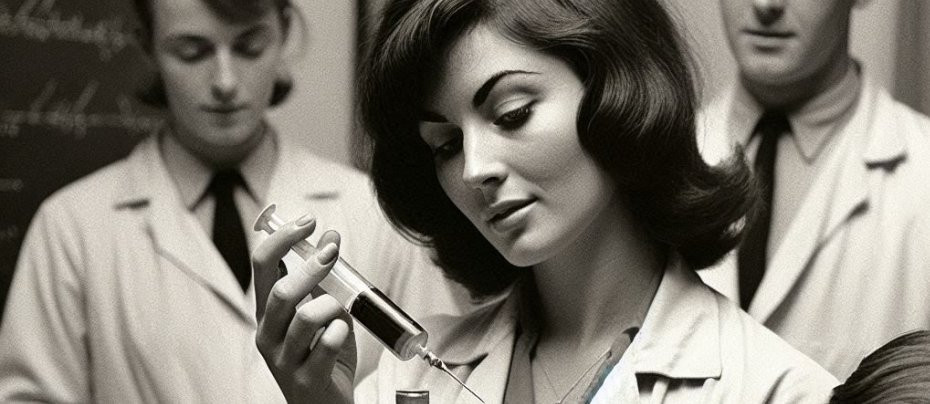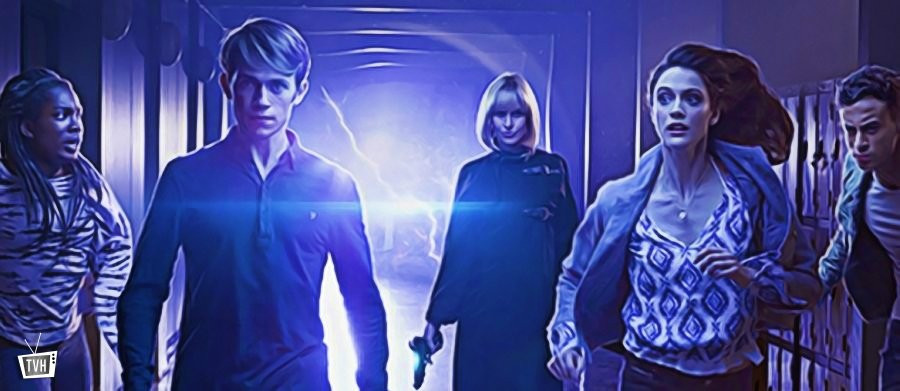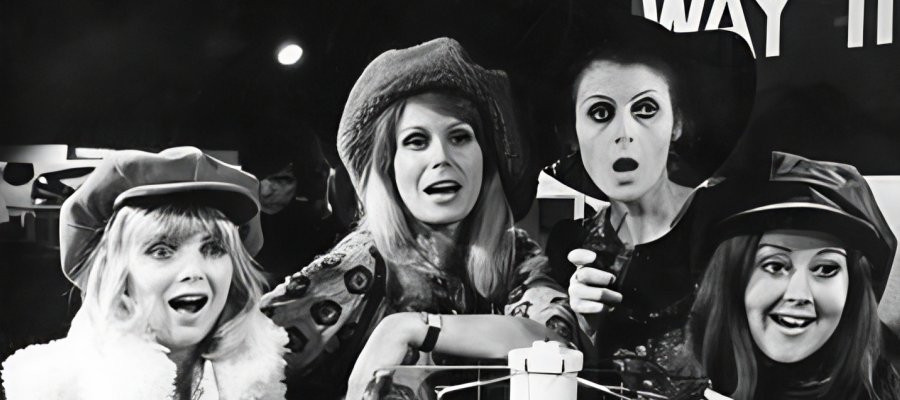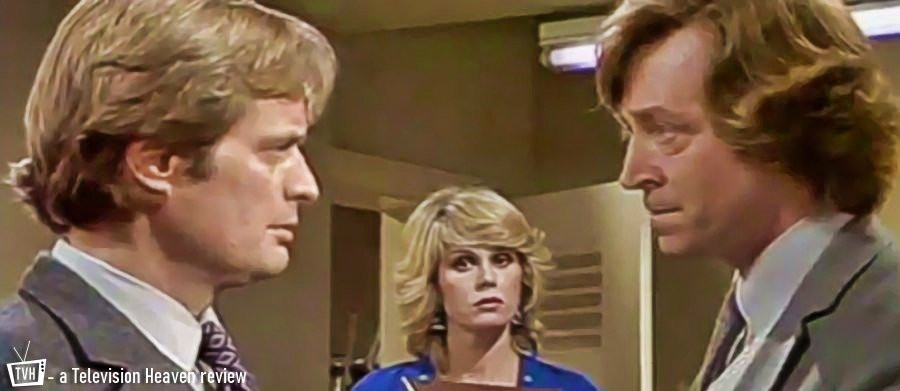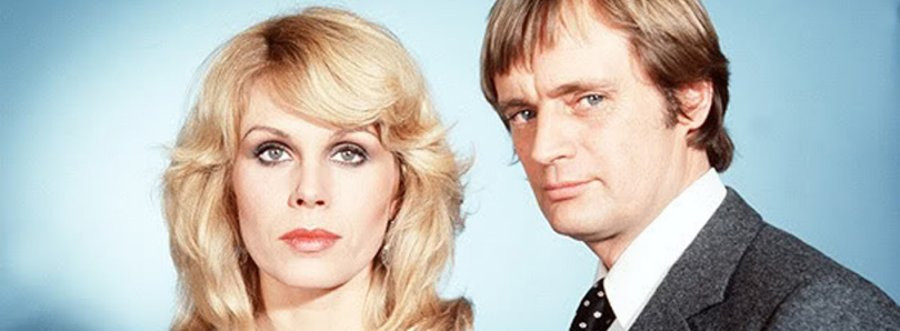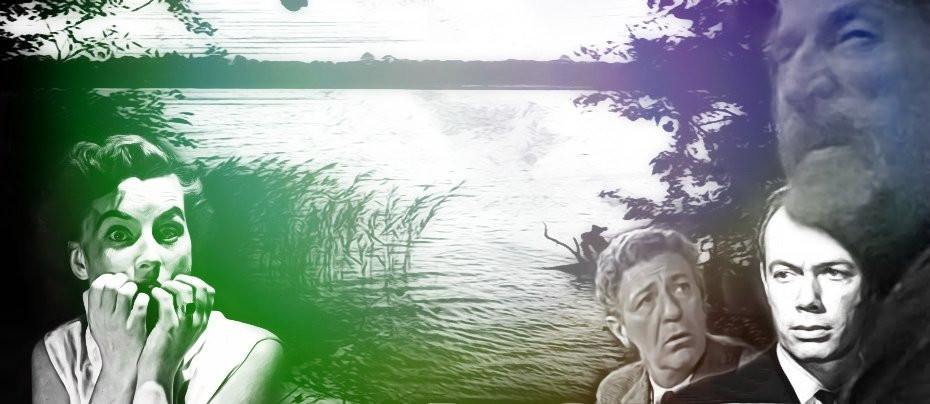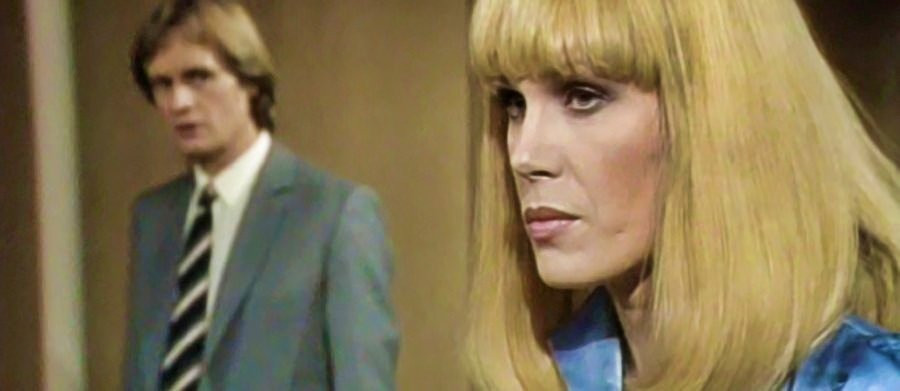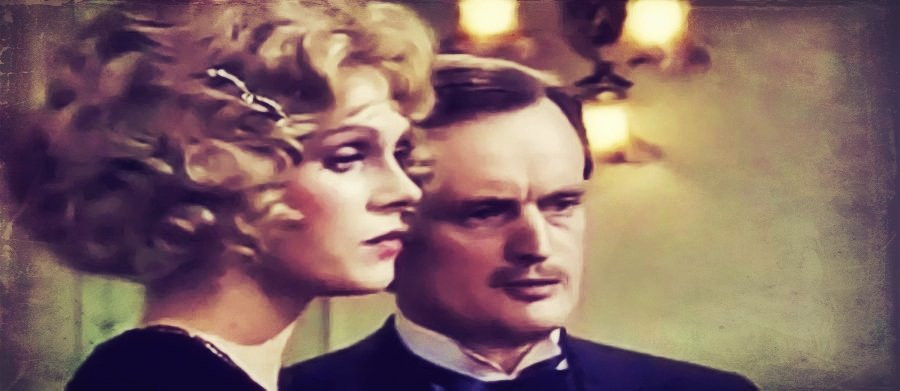
Sapphire & Steel - Assignment Five
Sapphire & Steel's fifth serial was held back six months until August 1981, airing as its own short third series of the programme. In spite of this, its production was marked by considerable haste, with filming started as soon as Assignment Four was in the can and a very short turnaround on the scripts. Series creator P. J. Hammond, under pressure to turn out another set of scripts in short notice, hit writer's block, and was unable to think of a suitably interesting idea for another case. As such, Assignment Five is the only Sapphire & Steel serial written by someone other than Hammond, with Anthony Read and Don Houghton taking on the writing duties. Both were solid writers who had gained genre experience in the 1970s, particularly on Doctor Who, and both had a reputation for being able to work quickly and reliably.
Read, in particular, was known as the man to call to salvage a project in a hurry, having essentially rescued the ITV series The Hammer House of Horror in 1980, and taken an unworkable script for Doctor Who's 1978 finale and turned it into something filmable. He had been the first writer approached by the producers, but with such a tight deadline, proposed bringing Houghton onboard. Houghton had a similar pedigree to Read, having scripted movie scripts for Hammer (including Dracula AD 1972 and The Legend of the Seven Golden Vampires) and two scripts for Jon Pertwee's Doctor Who (Inferno and The Mind of Evil) in the mid-seventies. Rather than write the scripts together, as originally planned, the writers chose to take on alternating scripts, setting each other up with cliffhangers to resolve.

The result is a serial that stands out in against the others in the programme. There's a distinctly different feel to Assignment Five, partly due to its much larger cast, but also due to the faster paced and more humorous scripts. For some fans of the series, this has led to Assignment Five being considered a weaker story. However, the different style of this serial is a great strength, adding some variety to the series, which, to be honest, is needed. With every other episode written by Hammond, there's a very consistent flavour to the programme, and it came to feel a bit samey. Had the series continued past the sixth serial, more writers would have been essential to keep things fresh and interesting. Moreover, the fifth serial is probably the most accessible of the stories, and while it's not as bafflingly creepy as the rest of the show, it still resolves around a fascinating temporal conundrum.
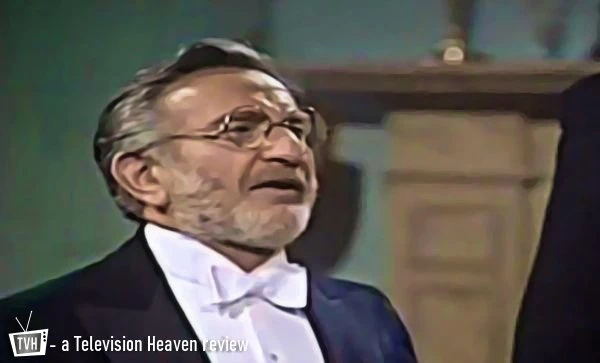
The six-part adventure begins in an opulent house in 1980, which has been restored to authentic 1930s style for a special dinner party by its owners. Lord Mulrine is holding the party to celebrate the fiftieth anniversary of the business he founded with his late partner, Dr. George McDee, who died in a fire while the business was in its early days. Mulrine is played by Davy Kaye, a one-time stand-up comedian who had also clocked up a few solid dramatic roles, but best remembered for comedy roles in Chitty Chitty Bang Bang, Carry On Cowboy and Carry On At Your Convenience. In spite of being about a foot shorter than the rest of the cast, Kaye dominates his scenes, every bit the master of the house. He's also very much a working-class actor, his voice (which sounds very much like David Jason's Del Trotter) a stark contrast to the all the posh types around him. It's clear that Mulrine is a self-made man who's achieved his fortune and title on his own merits.

He's accompanied by Emma Mulrine (who one would assume to be his wife, but is later confirmed to be his sister in dialogue), played by respected veteran actress Patience Collier. Known for films such as Fiddler on the Roof and Endless Night, she also had numerous television roles by this time and was something of a legend among the acting community. Collier certainly has a powerful presence in the serial and by all accounts this was just as true off screen. That said, there are times where her delivery is just awful, particularly in the climactic drama of the final episode. It sometimes sounds like she's reading dialogue she's never seen before, but given the speed at which this was filmed, she very possibly was. Also present is Nan Munro as Felicity McDee, the late doctor's wife. Munro had a long list of credits to her name too, having acted since the 1940s, largely in comedy and period dramas, and also boasting five roles in ITV Play of the Week and two in Armchair Theatre. For all appearances a sweet old lady, Mrs. McDee has a seriously dark side that comes out later.

Along with the original inhabitants of the house are a host of young guests, including Howard McDee, grandson to George and Felicity. He's played by Jeremy Child, another prolific jobbing actor probably best known for A Fish Called Wanda and Lagaan; he made a career of playing pompous, upper class types. Other guests are played by Jennie Stoller (Casualty 1909), Debbie Farringdon (The Brothers), Christopher Bramwell (The Lion, the Witch and the Wardrobe, Jack of Diamonds), but the most notable of the younger guests is Felix Harborough, played by Jeffry Wickham. Another prolific character actor, he'd worked with Read before on Hammer House of Horror, has appeared on everything from Doctor Who's first season to The Infinite Worlds of H.G. Wells, to more recently Ali G. Indahouse, Spooks and Black Mirror. Felix gets to be a major character, even teaming up with Sapphire & Steel at one point (who have crashed the party pretending to be Mr. And Mrs. Cavendish from some previous event). While Steel is mostly trying to keep him busy and out of harm's way, Sapphire think he could be useful and gives him minor telepathic powers as their temporary agent, Bronze. This is a great idea and it would have been interesting to see him pop up in a later story (had these come about) as a human go-between for the other-worldly agents.

Also appearing are Anne Shaw (Howard's Way, Coronation Street) as Patricia, Lord Mulrine's assistant who toils away in his office, sealed away from the party by a heavy door but vital to events, and Peter Laird (The Sandbaggers) as the somewhat shifty butler, Grenville. Everyone (except Patricia, hidden away) are required to wear correct period clothing for the 1930s, and all furniture and decor has been restored to its classic stylings, except for the anachronistic door to the office, which acts as a sort of marker between present and past. In the universe of Sapphire & Steel, though, anachronistic elements are doorways for temporal threats, and gradually, 1930s encroach on the 1980s. It begins innocuously enough – an old test match plays on the radio, the landscape out of the window isn't quite right – but things become stranger as the two timezones overlap. Those who were alive during the 1930s find their memories eroding, their personalities returning to the time of the accident. And Dr. McDee himself appears, wondering why he hasn't been invited to the dinner party. McDee is played by Stephen MacDonald, best known on screen for Seeing and Believing, but whose main career was as a writer and director. Dr. McDee was in fact his last screen role, and he makes the character a curmudgeonly but likable old Scot.

As the timezones overlap, the young guests are gradually bumped off by an unknown assailant. In a clearly Agatha Christie-inspired murder mystery, the characters are killed in increasingly inventive ways, starting with the youngest. While it's a fun run of murder mystery tropes, it's really just window dressing, and not the real threat. It's pretty obvious that the characters who wouldn't be around in the 1930s are being removed from time so that they can't interfere in events, and it turns out that they're not really even dead, just displaced. The real murder mystery revolves around Dr. McDee, whose death was far from an accident it turns out. McDee, as well as a businessman, was a scientist, working in virology in an attempt to alter and control deadly pathogens. His death and the fire that claimed his body also destroyed a deadly virus which he had accidentally created, and which would otherwise have escaped and wiped out humanity. By pulling the characters back to the events of that night, it seems that time itself is trying to alter events so that mankind is doomed. In spite of the murders and the apocalyptic nature of the threat, it's the most light-hearted of the serials. Sapphire and Steel arrive into this and try to pass themselves off as guests, something which Sapphire is rather better at than the antisocial Steel. Both Lumley and McCallum look very much the part in their 1930s costumes, although the false moustache and severely parted hair don't do McCallum any favours.

Much of the humour in the early episodes comes from Steel trying to engage in small talk with the guests. There's a particular closeness to the agents in this story, which makes them appear more human, but perhaps to counteract this, there are some exchanges which hammer home that the agents are something else altogether. It comes to light that Emma was having an affair with Dr. McDee, and the agents wonder if they were actually in love: "He was using her." "There's a difference?" "On this planet, yes."

In spite of the huge age difference between McDee and his rival lovers (due to the slipback in time), there's some strong chemistry between MacDonald, Collier and Munro, and the climactic finale events are suitably dramatic. It naturally ends in victory for the agents – wiping out humanity wouldn't have made the next serial very interesting, after all – but there's the sense, even in this rather fun and light story that the threats the agents are facing are becoming greater all the time. Assignment Five is highly entertaining, a success precisely because it's different to the rest of the series, and it would be a mistake to overlook the adventure because Hammond was less directly involved. Probably the most easily watchable serial in the programme, Assignment Five doesn't have the impact of some of the other stories but is great fun.
Review: Daniel Tessier
Dan describes himself as a geek. Skinny white guy. Older than he looks. Younger than he feels. Reads, watches, plays and writes. Has been compared to the third, fourth, fifth, sixth, seventh, eighth, tenth, eleventh and twelfth Doctors, and the Dream Lord. Plus Dr. Smith from 'Lost in Space.' He has also had a short story published in Master Pieces: Misadventures in Space and Time a charity anthology about the renegade Time Lord.
Dan's web page can be here: Immaterial
Published on February 16th, 2021. Written by Daniel Tessier for Television Heaven.



